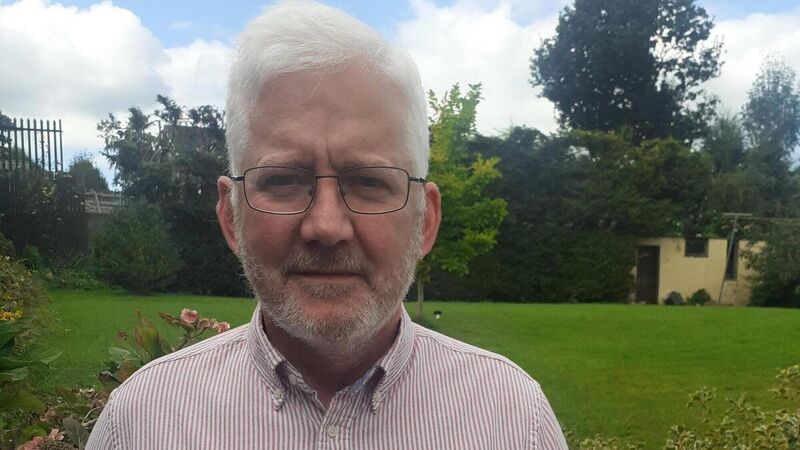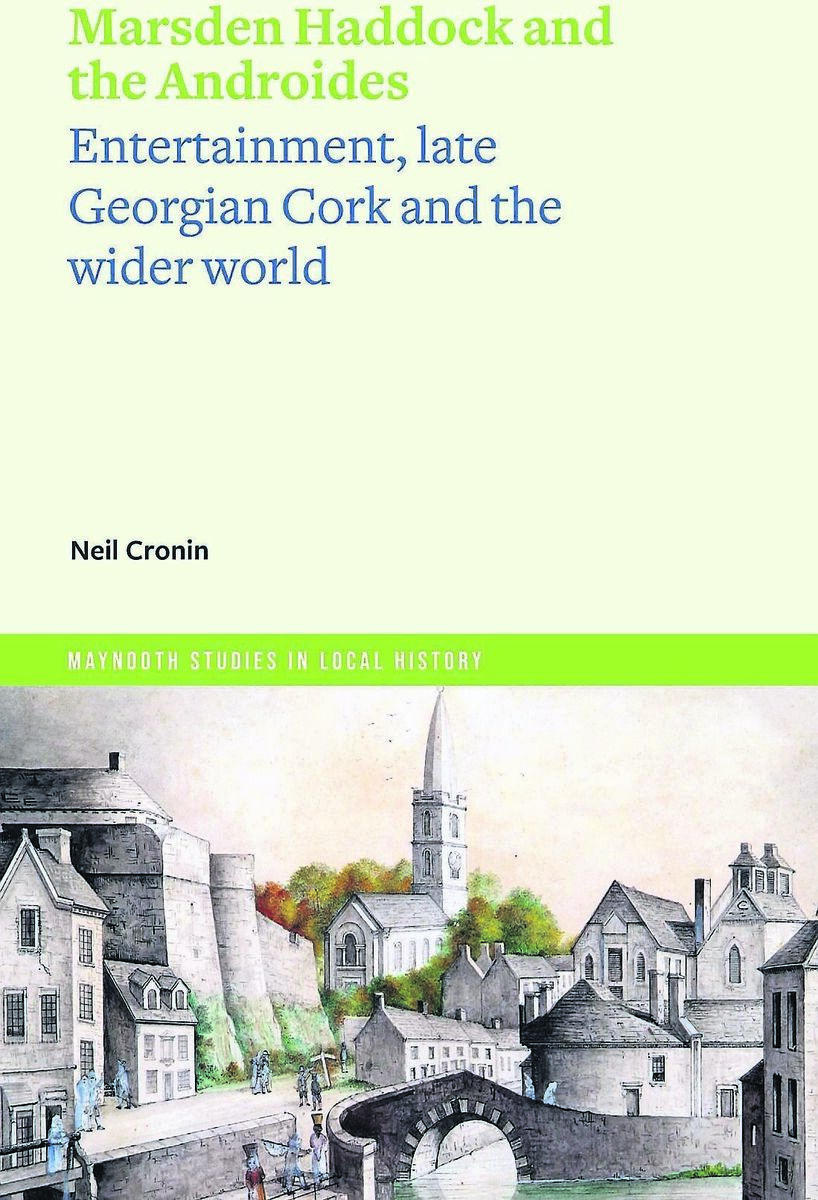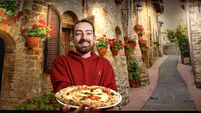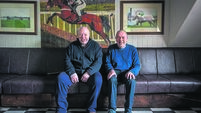Corkman was a robot inventor... in 1700s!

Neil Cronin, author of Marsden Haddock and the Androides Entertainment, late Georgian Cork and the wider world.
CORK author Neil Cronin, who has an interest in local history, has written a book about an entrepreneurial entertainer and crafts man called Marsden Haddock, who was born around 1759.
The book, Marsden Haddock And The Androides: Entertainment, Late Georgian Cork And The Wider World, tells the intriguing story of this man who devised an exhibition of mechanical ingenuity, with the focus on androids and puppet-like figures.
Haddock’s life-like automatons could be programmed to do set movements and some of them could write.
The other element of his entertainment offering were the puppets. They both came under the title of ‘androides’ and were a source of fascination.
Marsden’s career coincided with the height of the automaton craze at the end of the 18th century and the first decades of the 19th century.
He began his working life with his father, Edward, a furniture maker based at Fenn’s Quay. He went on to make musical organs and intricate items such as umbrellas and had a shop in Castle Street that included a workshop. This premise, until it went bankrupt, was used by Marsden to put on shows.
By the late 18th century, people had some designated leisure time and were keen on entertainment, including everything from freak shows where giants roamed the stage, to ‘hairy ladies’, as well as Marsden’s androides.
Neil says that it’s likely the young Haddock was inspired during his formative years by exposure to examples of the mechanical arts. As a youth, he may have been taken to see James Cox’s celebrated Museum of Automata on its visit to Dublin in 1774.
Neil came across this largely forgotten man when he was reading newspapers from centuries ago.
“I’m interested in Cork about 100 years before the famine. Coming across Marsden piqued my interest. Over time, I accumulated a lot of information about him, a lot of it online.

“During Covid, the British Library made its archives more accessible.”
As Cronin points out, “we think of automatons as recent things. But on the continent in the 18th century were people with clockwork mechanisms interested in machines that could be programmed. They were popular in England and America.”
Touring shows from England often came to Cork as part of their itineraries.
“There were theatres in Cork, including in the present day post office on Oliver Plunkett Street. There were some on Patrick Street too. They were a bit like the current cinemas; they would come and go.
“Most of the travelling entertainment was things like theatre and music.
“With the Industrial Revolution, puppets and automatons came to the fore and occasionally came to Cork.”
Marsden, however, staged his Androide shows in the city before touring with them, a reversal of the usual trend.
Cork was a busy place during the Napoleonic Wars, a large port and agriculture producer.
It was a big military place as well. The British Navy used facilities here. Cork was interacting with the wider world. Local merchants were working in Spain, Portugal, France and so on.
“Cork’s population ballooned during the 18th century and was for a time very prosperous,” says Neil.
“But after the Battle of Waterloo (in 1815), the whole thing crashed and Cork’s economy was shattered.
“Marsden had been in London in the 1790s. He returned to Cork and settled here full time. But when the economy fell apart, there was a lot of bankruptcy.
It was then that Marsden started touring through provincial England and later on America.
“I’d say he started touring in later life, out of economic necessity rather than any ambition. It was foisted on him....
“Making organs was the occupation he liked most, but with the economy breaking down, he resorted to staging his automatons again.”
Marsden’s audience was anyone who could pay the admission ticket. “His advertising was for the gentry and prosperous people,” says Neil.
“Tickets for the shows were approximately two shillings, which was significant enough. He probably made loads of money.
He was involved in other schemes such as glass-making and paper-making. He made money and lost it too.
Neil thinks Marsden, most likely from a Protestant background, was married twice. He had three children and he moved his family to America. They were part of the show.
“The last show of his that can be located was in America in 1829 (in Connecticut.) I suspect he died soon after.
“As far as I know, there are no Haddocks in Cork now and there hasn’t been for generations. The business died with Marsden.”
Exhibitions were popular “as there were no pictures in newspapers so there was no representation of battles or foreign cities - or even portraits of Napoleon. People would pay to look at representations. It was a very different world, one that we would find hard to understand.
The things that attracted audiences were, in modern terms, unpleasant and wouldn’t be countenanced now.
Marsden was of his time, appealing to the public hungry for entertainment.
“His shows were small because his exhibits were not much higher than a foot each. So audience size was constrained. He could only accommodate small numbers.”
In Neil’s opinion, Marsden was an engaging character. “In the face of recurrent setbacks, he was distinguished by ingenuity, versatility and resilience.” I
n following the money, he brought a lot of joy to people. His figures also provoked wonder and often fear.”
The book is published by Four Courts Press and can be bought online. See www.fourcourtspress.ie.







 App?
App?


